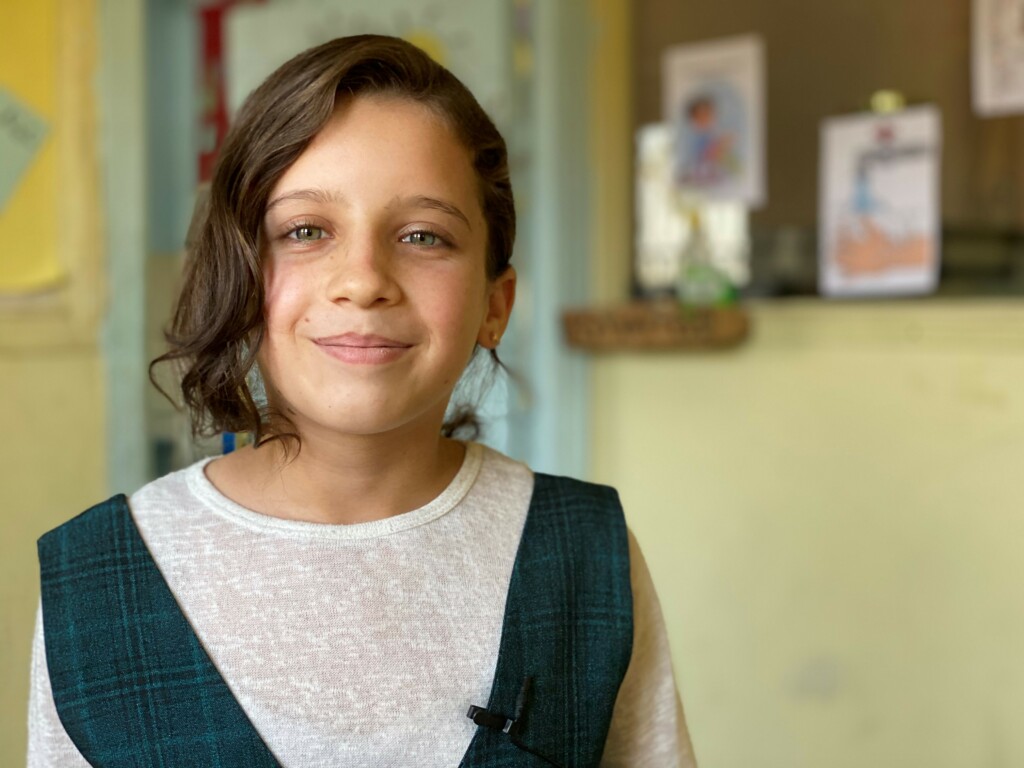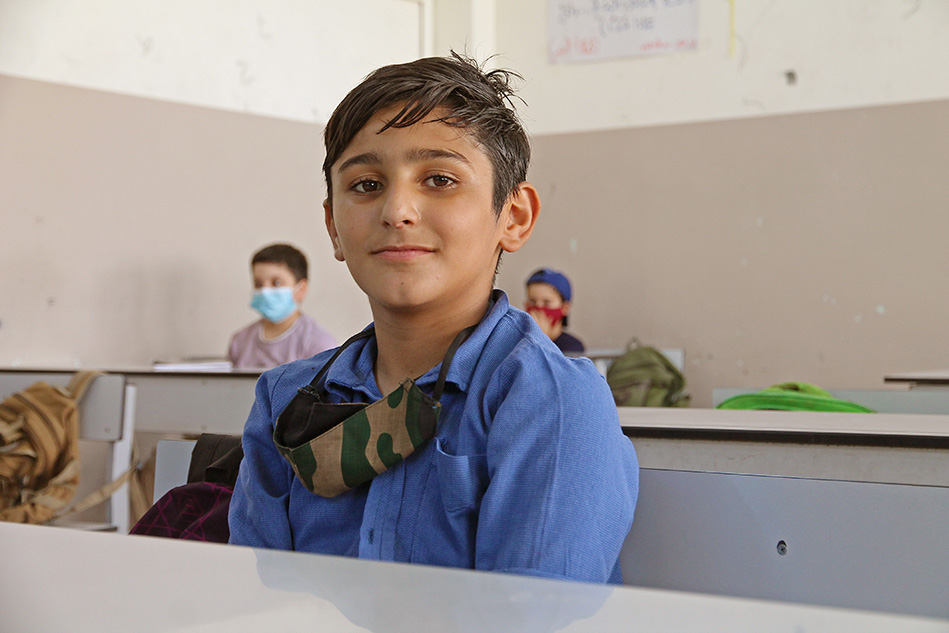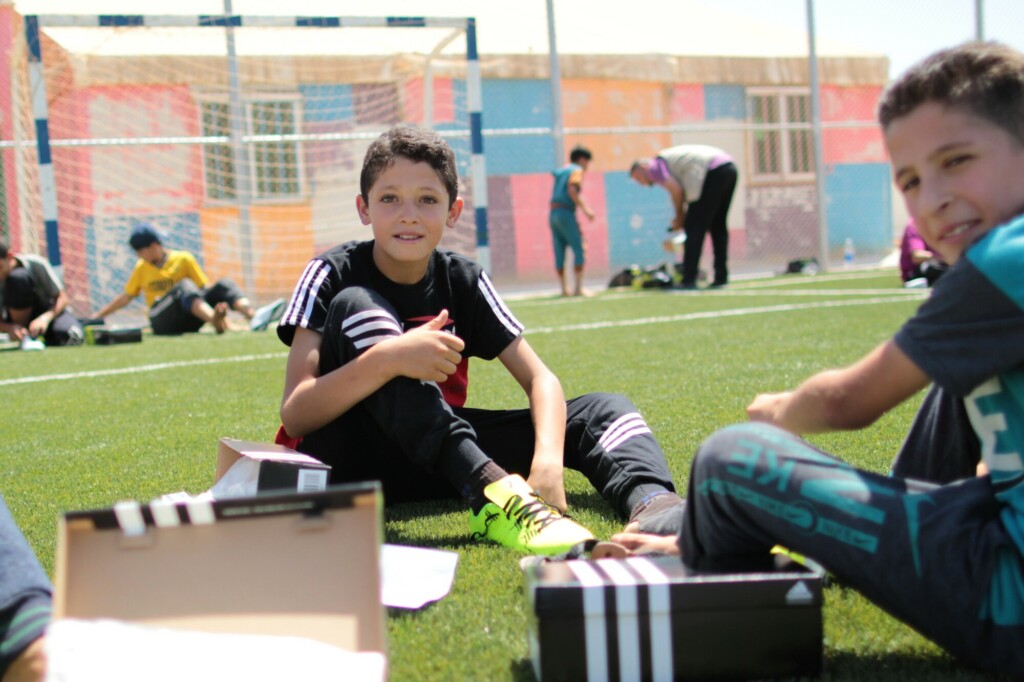Children of Jordan – اطفال الاردن
The Hashemite Kingdom of Jordan has taken an early interest in the issues of gender-based and family violence and the protection of children from violence, exploitation, neglect and abuse at the national level. Key milestones have been reached in this area by the national governmental and no-governmental institutions and international organizations which were demonstrated through a variety of programs and projects that have contributed to the development of a legislative and institutional environment and services in the field of protection. With regard to legislation, several laws were issued z including the Protection against Family Violence Law, the Jordanian Juvenile Law and the National Team for Family Protection against Violence Bylaw and its accompanying instructions. As for procedures, (The procedural level has been mentioned in the second paragraph, I suggest joining this part with the part below) several national documents were developed including "The National Framework for Family Protection against Violence” in 2016, and the “Accreditation and Quality Control Standards for Services Provided to Family Violence Cases" prepared in 2014.

Also included is the “Inter-agency emergency standard operating procedures for prevention of and response to gender-based violence and violence, abuse, neglect and exploitation of children in Jordan” which was developed in 2011 targeting refugees in the Hashemite Kingdom of Jordan. The latter document has been reviewed and updated periodically up to the year 2014.
With a view to reinforce the national vision in strengthening the protection system and institutionalizing efforts exerted by national governmental and non-governmental institutions, UN organizations and international organizations working in this field, work has been done to develop the “Inter-agency Emergency Standard Operating Procedures for Prevention of and Response to Gender-based Violence and Child Protection in Jordan”. The SOPs are considered a national reference document aimed to enhance the effectiveness of national policies and procedures in this field and set forth joint work mechanisms based on the needs and desires of the victims. According to the SOPs, roles and responsibilities of all concerned institutions will be defined in line with their active and legal mandates and based on a standard case management approach to enhance the effectiveness of their response and the quality of services presented through them to meet the needs of the victims in a manner that ensures respect for their rights and wishes.
With a view to reinforce the national vision in strengthening the protection system and institutionalizing efforts exerted by national governmental and non-governmental institutions, UN organizations and international organizations working in this field, work has been done to develop the "Inter-agency Emergency Standard Operating Procedures for Prevention of and Response to Gender-based Violence and Child Protection in Jordan”. The SOPs are considered a national reference document aimed to enhance the effectiveness of national policies and procedures in this field and set forth joint work mechanisms based on the needs and desires of the victims. According to the SOPs, roles and responsibilities of all concerned institutions will be defined in line with their active and legal mandates and based on a standard case management approach to enhance the effectiveness of their response and the quality of services presented through them to meet the needs of the victims in a manner that ensures respect for their rights and wishes. The SOPs were prepared through a collaborative work with all national governmental and non-governmental institutions, United Nations organizations (UNICEF, the United Nations High Commissioner for Refugees, the United Nations Population Fund) and the international organizations members in the special Sub-Working Groups, namely the CP Sub-Working Group and GBV Sub-Working Group in Emergencies and Crises. Technical committees were formed representing the key actors to review the frameworks and final drafts emerging from this document which were based on the best practices at the international and national levels and the existing legislative and institutional reference documents at the national level. Moreover, several technical workshops were held with the broad participation of relevant actors to discuss the various drafts and final versions of the document, which helped create a common understanding among all institutions and sectors working in this field with regard to the importance, purpose and requirements of the its implementation. As a binding reference document and a methodology for case management for all national and international institutions operating on the territory of the Hashemite Kingdom of Jordan concerned with providing prevention programs and services in response to GBV, family violence and CP against exploitation, neglect and abuse:

- Set a general framework for protection and prevention policies and programs for GBV, Family violence, and CP against exploitation, neglect and abuse based on a multi-sectoral and victims needs-based approach.
- Establish and reinforce collaboration mechanisms among partners to provide integrated and comprehensive quality programs and services according to documented procedures that define roles and responsibilities and ensure a comprehensive participatory response to GBV and family violence and CP. This should be followed by a systemized process of supervision and follow-up based on case management methodology guided by the needs and wishes of the victims, taking their best interest into account.
- Find and instil a common language and understanding among all specialists and workers operating within the field of GBV, family violence and CP to ensure the alignment of the programs and activities of all parties working in this field.
The document incorporates two interrelated and complementary parts, as follows:

- Part One: Details general policies, guidelines and programs in the field of prevention and response to GBV, family violence, and CP in Jordan including the minimal procedures for the prevention of and response to GBV, family violence, and child protection against violence, exploitation and abuse. It also outlines the methodology for working with cases in terms of concepts, principles, tools, and various stages of intervention within a framework that defines the roles of institutions and organizations responsible for implementing procedures in the five main response sectors which are: health, psychosocial support, law/ justice and security and the education sector.
Part Two: SOPs for each form of violence, for example, but not limited to, domestic violence, child labour, juveniles, child marriage …etc. The SOPs reflect a series of systematic procedures for working with cases of violence based on the victim’s rights, wishes and needs. They also defines roles and responsibilities of all relevant partners within a framework of cooperation, coordination, and vigorous follow-up of all cases across all stages of intervention from case admission to file closure in a manner that ensures the provision of quality, timely and appropriate services by the relevant authorized entity. The SOPs for handling family violence has been prepared, and work is currently underway to develop two SOPs, one for dealing with child labour cases, and the other for dealing with juveniles.
- An effective cross-cutting response system to GBV, family violence and child protection cases at the national level requires the commitment of all governmental and non-governmental institutions and international bodies to this document as a guiding reference to organize and institutionalize their work in the prevention of and response to cases of violence and to ensure that their internal procedures including the policies, principles and roles are observed as defined in the SOPs.
- This SOPs document will be reviewed periodically to ensure that information is updated and that they reflect best relevant national and international practices to improve the quality of services provided to all cases of violence in Jordan.
